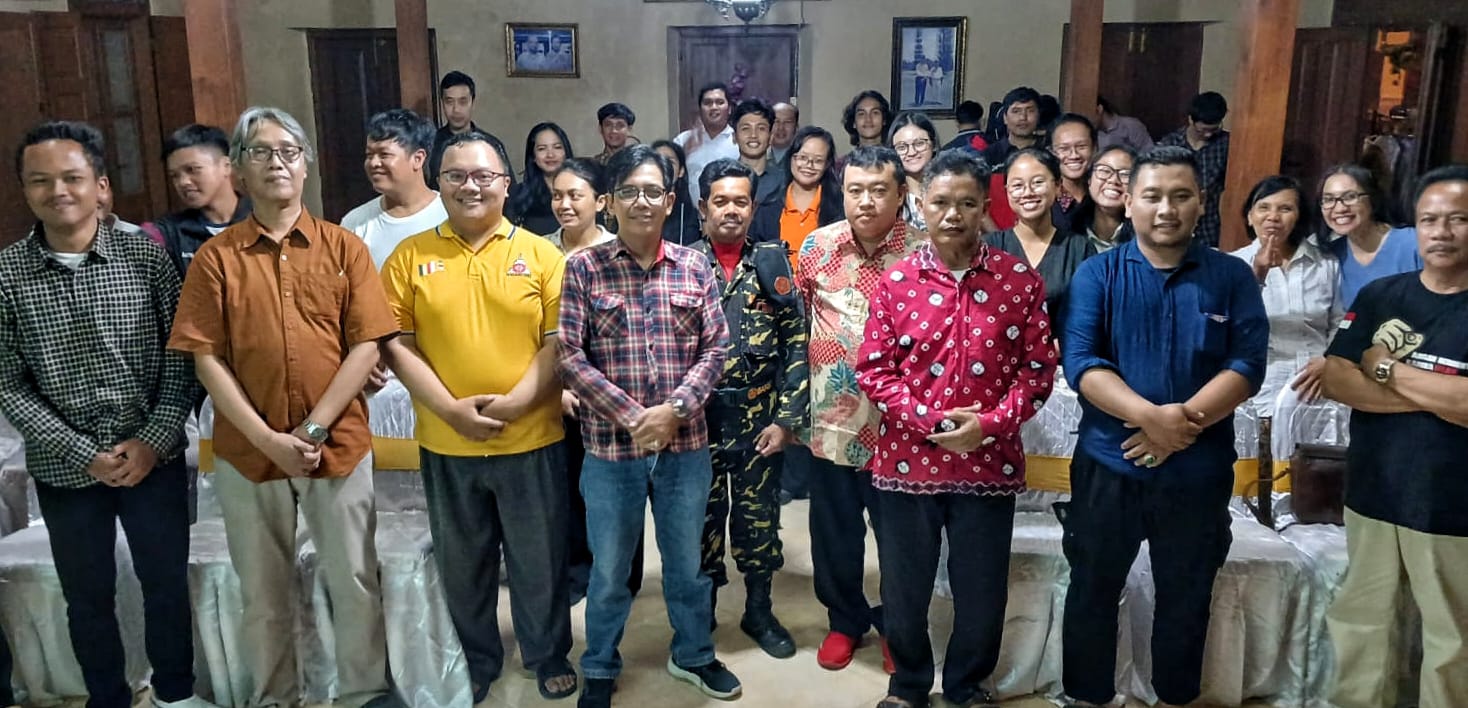Youth representatives from six religious traditions gathered on March 15, 2025, for an Interfaith Youth Meeting hosted by the Interfaith Relations Team of St. Mary’s Marganingsih Kalasan Church (GMMK) to explore the spiritual meaning and practices of fasting across different faiths.
Held under the theme “Fasting from the Perspective of Different Religions,” the event brought together young people from Catholicism, Christianity, Hinduism, Buddhism, Islam, and Confucianism.
Members of the Srikandi Interfaith Community (SriLi) also took part in the gathering, which forms part of GMMK’s Community Program.
Bernardus Purnama of GMMK’s Interfaith Relations Team said the initiative aims to promote interreligious understanding and tolerance among youth.
“The interfaith youth gathering serves as a platform for dialogue, knowledge-sharing, and understanding of fasting traditions. Through this initiative, it is hoped that young people can gain a deeper understanding of one another and foster tolerance,” he said.
Speakers from each religious tradition shared their perspectives:
Marsahid, a Hindu leader from Pura Widya Dharma Dero, explained that Hindus fast before Seclusion Day (Nyepi) by observing four forms of self-restraint: “Amati karya (refraining from work), Amati lelungan (refraining from travel), Amati geni (refraining from lighting fires or lamps), Amati lelanguan (refraining from entertainment and pleasure). This fasting aims for self-reflection and spiritual purification,” he said.
From the Buddhist tradition, Anditya Restu Aji of Vihara Dharmma Wijaya outlined fasting dates and practices, saying, “Buddhists observe fasting on the 1st, 8th, 15th, and 23rd days of the Lunar Calendar.” He added that prior to Vesak Day, Buddhists observe Uposatha, a month-long fasting period during which they may drink only plain water and take necessary medicine.
Islamic fasting practices were explained by Wahyu Eko of the Legal Aid Team of GPC Ansor in Sleman Regency. He stated, “Fasting (shaum) is derived from Arabic and is one of the Five Pillars of Islam.” He noted that Muslims abstain from food, drink, and other invalidating acts from dawn until sunset, with the goal to “enhance piety, cultivate exemplary behavior, and cleanse past sins.”
Catholic perspectives were shared by CB Ismulyadi of St. Mary’s Marganingsih Kalasan Parish Church, while Eka Putra of the Kwan Tee Kiong Temple represented the Confucianist tradition.
Karolina Ratna from the Srikandi Interfaith Community welcomed the initiative, emphasizing its potential for future collaboration. “Through meetings like this, we can develop other collaborative activities, such as interfaith visits and social service projects,” she claimed.
The event reflects ongoing grassroots efforts in Yogyakarta to foster interreligious harmony through shared dialogue and engagement among youth. – with reports from Anton Adi Prabowo







